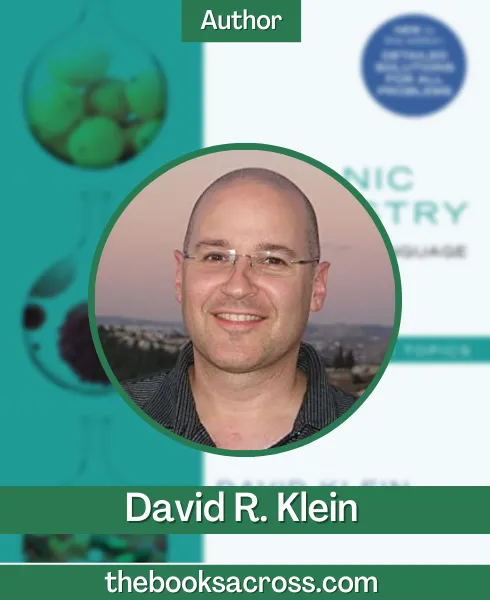As I stared at the complex, multi-dimensional structures in my organic chemistry textbook, I felt like I was looking at a foreign language. The seemingly endless array of chemical reactions, the intricate nomenclature system, and the mind-boggling mechanisms all seemed to conspire to make organic chemistry an insurmountable barrier. I desperately felt the need for a guide, a roadmap to navigate this chemical wilderness. Thankfully, I stumbled upon a treasure trove of resources, including the ever-popular “Organic Chemistry as a Second Language” textbook, and realized that even the most complex molecule could be understood with the right approach.

Image: chemlabsoft.blogspot.com
But the journey to understanding organic chemistry went beyond the textbook. It required a shift in my approach, a change in my perspective. This was not just about memorizing facts; it was about grappling with concepts, developing an intuitive understanding of chemical principles, and building the confidence to tackle any challenge that came my way. “Organic Chemistry as a Second Language” became my companion, a guide that helped me unravel the intricacies of this fascinating branch of chemistry.
Unlocking the Secrets of Organic Chemistry: Understanding the “Second Language”
For many students, organic chemistry presents a unique challenge. Unlike general chemistry, which often focuses on the macroscopic properties of matter and the laws governing chemical reactions, organic chemistry dives deep into the molecular world. It explores the structure, bonding, and reactivity of carbon-containing compounds – the building blocks of life itself.
The book “Organic Chemistry as a Second Language” by David R. Klein provides a fresh perspective on approaching the subject. It takes its name from the idea that organic chemistry, much like a foreign language, requires fluency in its specific vocabulary, grammar, and syntax. Mastering these elements allows students to understand and speak the language of organic molecules.
Navigating the Language of Organic Chemistry
The book introduces key concepts like functional groups, reaction mechanisms, and spectroscopy in a way that is both accessible and engaging. Klein breaks down complex topics into smaller, digestible pieces, making the learning process less intimidating. He uses analogies, real-world examples, and clear diagrams to illustrate abstract concepts, ensuring that students grasp the fundamental principles.
This approach fosters a deeper understanding of the underlying principles, making it easier for learners to apply their knowledge to new situations. The book also emphasizes the importance of practice and problem-solving. It includes numerous practice problems and exercises, giving students the opportunity to test their understanding and build confidence in their abilities.
The “Organic Chemistry as a Second Language” textbook has become a valuable resource for students struggling with the subject. Many online forums and social media platforms buzzing with students have discussed its effectiveness in breaking down complex concepts into manageable pieces, making organic chemistry more approachable.
Tips and Strategies for Mastering the Language of Organic Chemistry
Learning organic chemistry effectively requires a multi-faceted approach. While the book “Organic Chemistry as a Second Language” provides an excellent foundation, here are some additional tips and strategies to enhance your learning experience:
- Active Learning: Don’t just read the material passively. Actively engage with the concepts by taking notes, summarizing key points, and answering practice problems.
- Visualize the Molecules: Draw chemical structures repeatedly. This helps visualise the three-dimensional shape of molecules and understand their properties better.
- Form Study Groups: Collaborate with other students. Discussing concepts with peers can help clarify confusing ideas and foster a deeper understanding.
- Practice, Practice, Practice: As with any language, fluency in organic chemistry comes with practice. Work through as many problems as possible.
- Seek Help When Needed: Don’t hesitate to reach out to your instructor, TA, or a tutor if you encounter difficulties. Asking for help is a sign of strength, not weakness.
Mastering the language of organic chemistry is an ongoing process. It requires dedication, perseverance, and a willingness to embrace the challenges along the way. By consistently applying these tips and strategies and relying on resources like “Organic Chemistry as a Second Language,” you can navigate the intricacies of organic chemistry with greater confidence and success.

Image: thebooksacross.com
Frequently Asked Questions about Organic Chemistry
Q: What is the ‘Organic Chemistry as a Second Language’ PDF?
A: “Organic Chemistry as a Second Language” is a popular textbook that presents organic chemistry in a clear and engaging manner. The PDF version of this textbook is a digital copy that can be accessed and read on various devices.
Q: Why is understanding organic chemistry important?
A: Organic chemistry is essential for a wide range of scientific fields, including medicine, agriculture, and materials science. It plays a vital role in understanding the chemistry of living organisms and the development of new drugs, polymers, and other vital substances.
Q: How can I best study for an organic chemistry exam?
A: Consistent practice is key. Work through practice problems, make flashcards to review key concepts, and participate actively in class. Understanding the reasoning behind the answers rather than just memorizing them is crucial for success.
Organic Chemistry As A Second Language Pdf
Conclusion
Organic chemistry, with its complex molecules and intricate reactions, can initially seem daunting. But with the right resources and a focused approach, it can be mastered. “Organic Chemistry as a Second Language” can serve as a valuable bridge between a student’s initial confusion and a clear understanding of the subject. By embracing active learning techniques, visualizing molecules, and practicing consistently, you can unravel the secrets of organic chemistry and truly speak its language.
Are you ready to start your journey into the fascinating world of organic chemistry?






